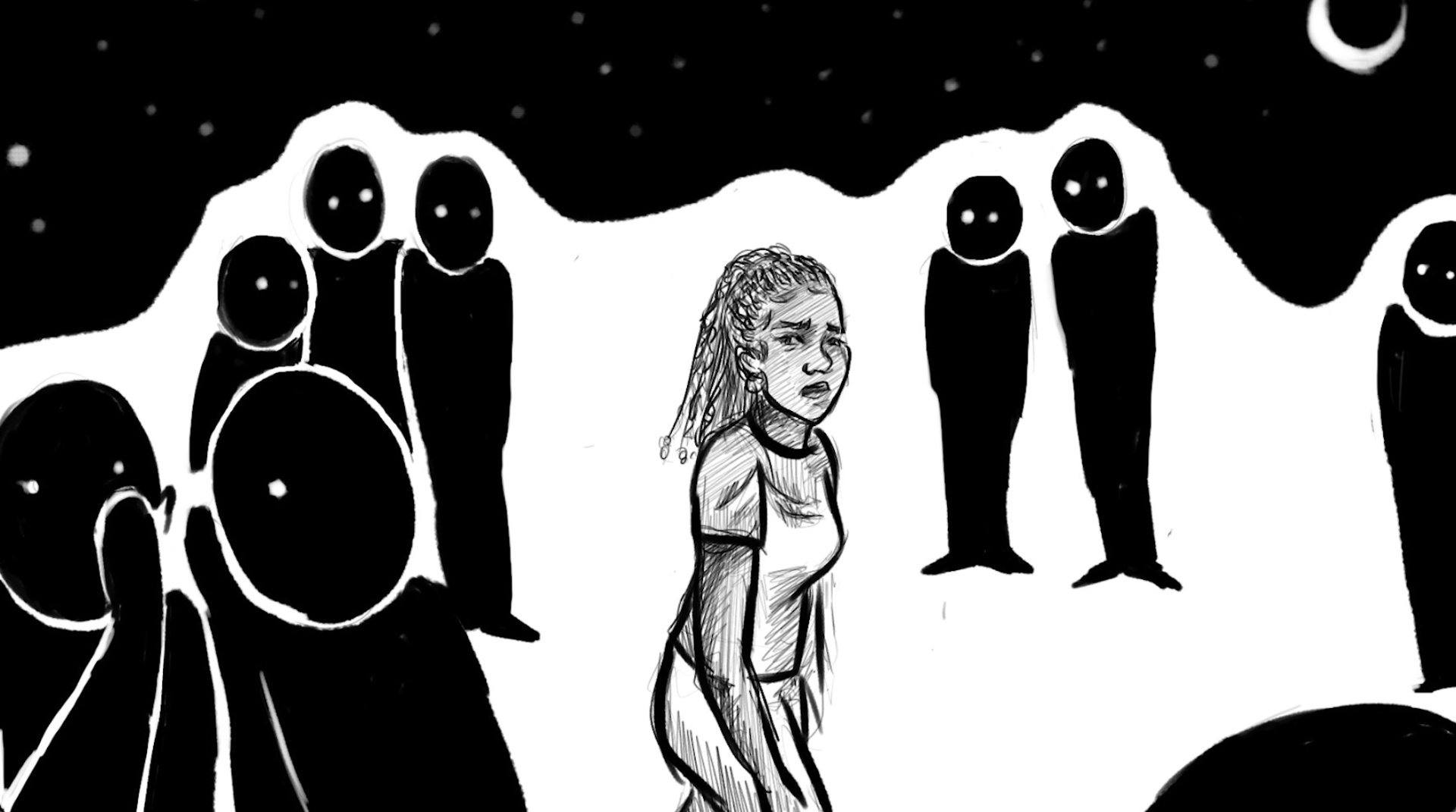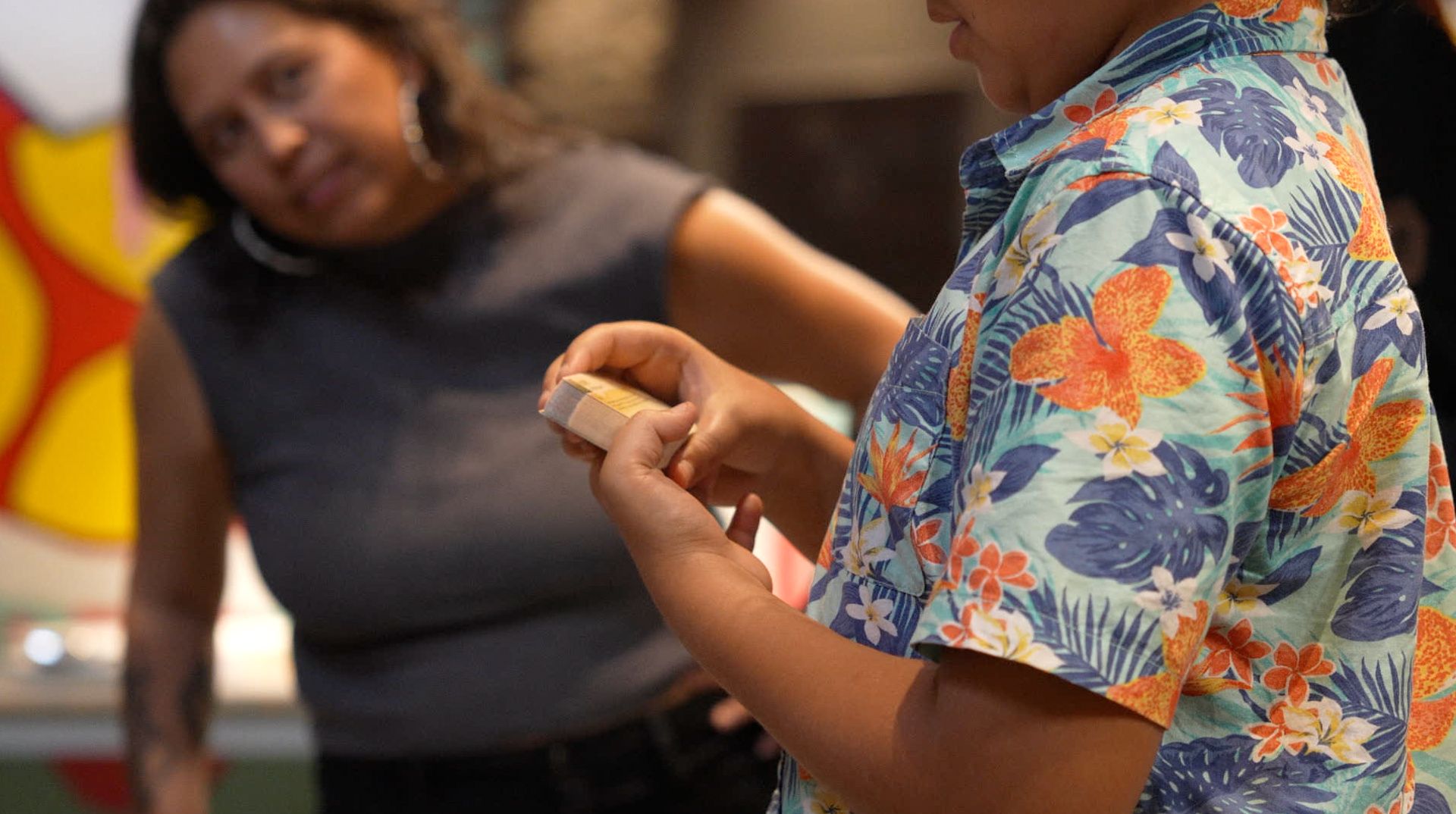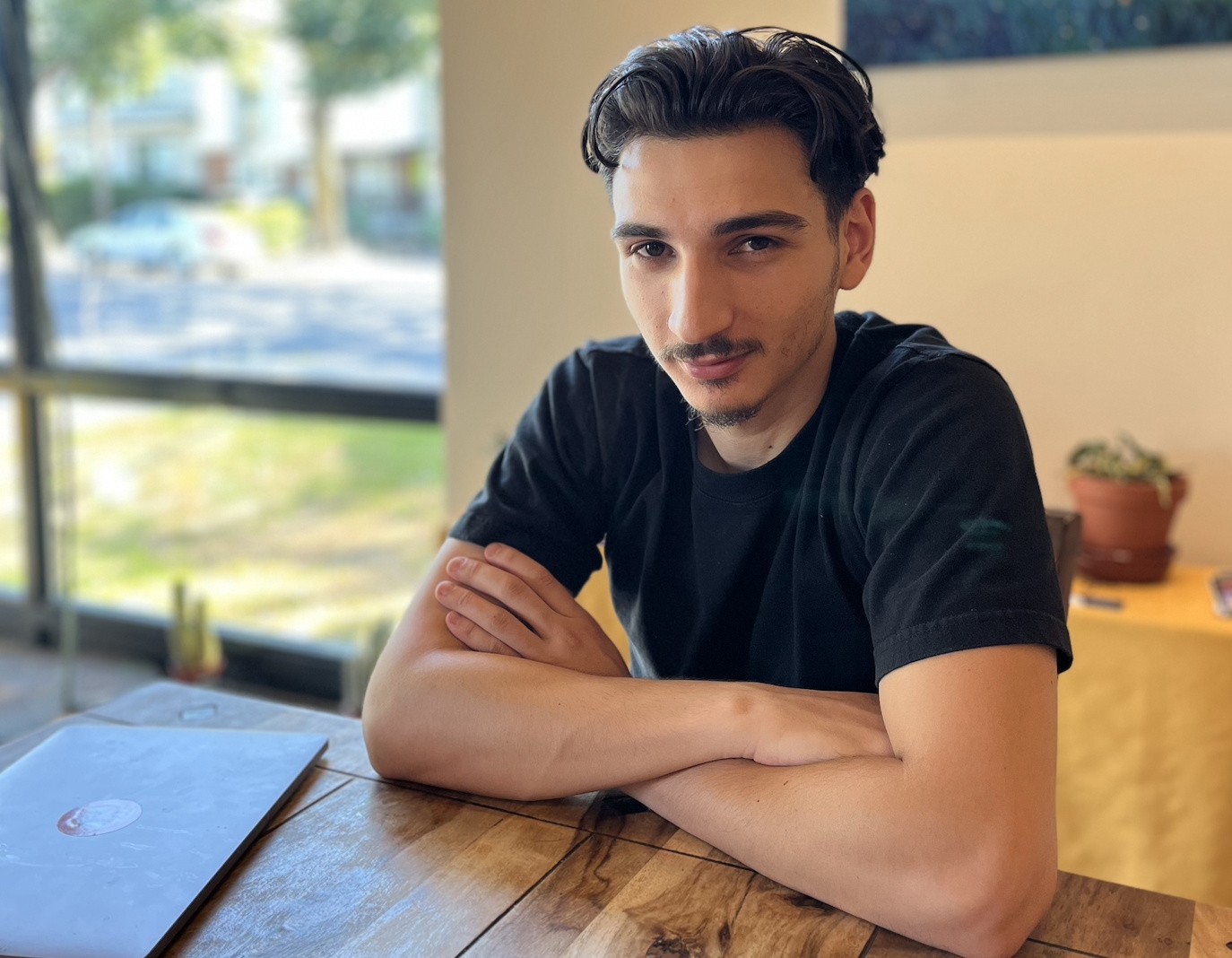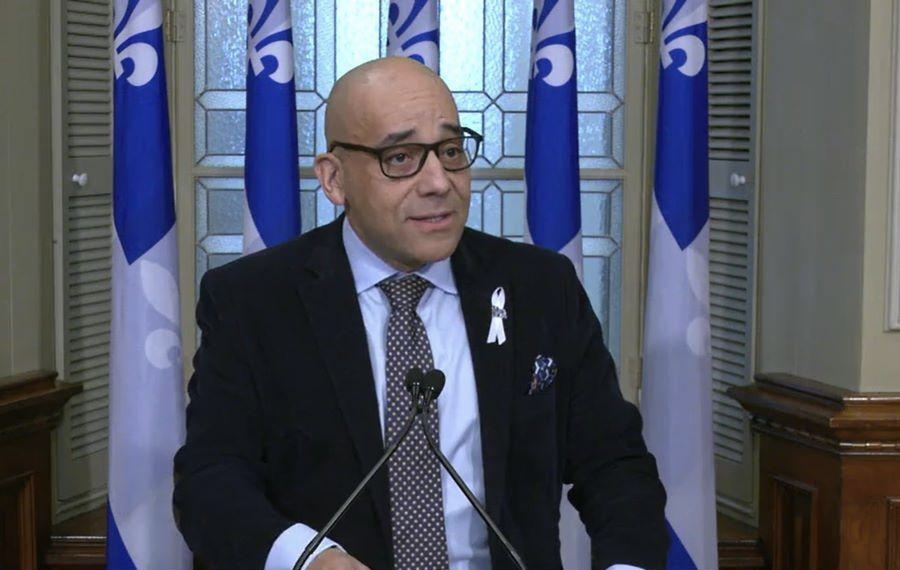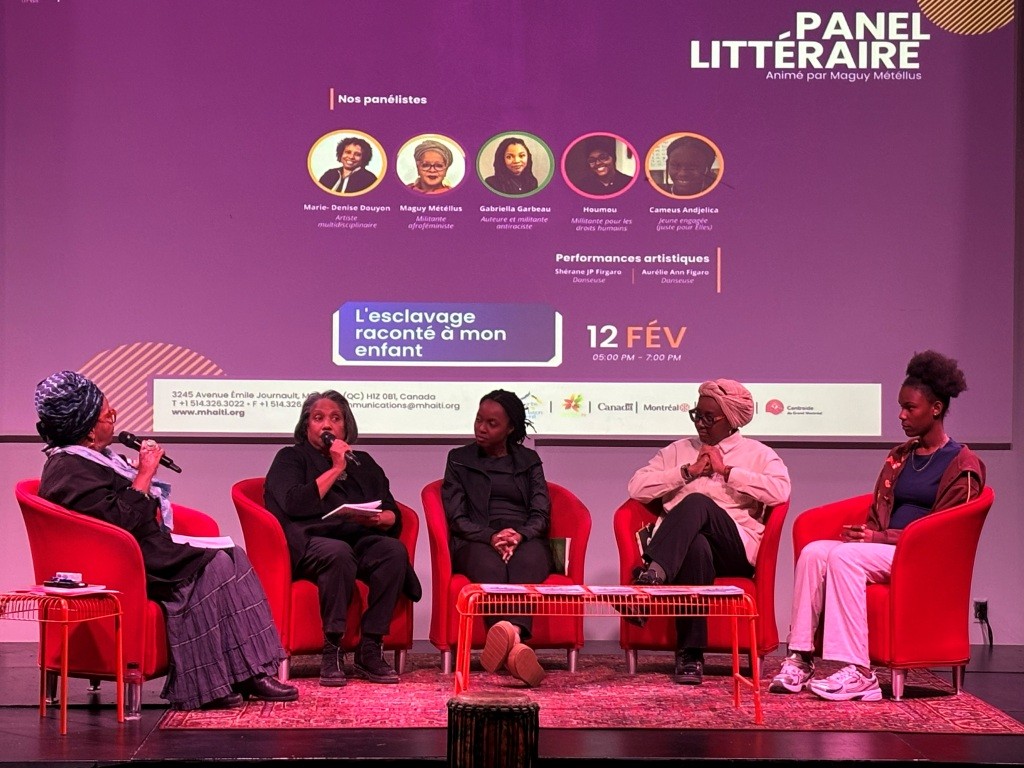Saint-Michel. At the Pretty Little Thing nail salon, the polish dries and tongues loosen. Security, poverty, housing, disillusionment. These voters no longer believe in the promises of the federal candidates. But they haven't given up on voting.
Between foot baths, layers of polish and the usual small talk, another topic comes up in the discussions: politics. Here, no one talks about election platforms or campaign slogans.
What emerges are the realities of everyday life, frustrations, and above all, a shared feeling: that of being forgotten.
From Montréal-Nord to Pointe-aux-Trembles, via Ahuntsic, they are mothers, students, workers, children of immigrants. And if they all intend to vote, it is not because they still believe in the promises of politicians, but because they cling to what they have left: a duty, a voice.
Myriam: “I vote to vote. But I don't believe in it anymore.”
Myriam, 29, is sitting at the back of the living room. Wearing a black hijab to match her jacket, a “French manicure” in progress, she coughs slightly - she has been suffering from a lung infection for weeks, her medical appointment only took place this morning, after more than a month of waiting.
She laughs a little when asked if she still believes in elections. “Honestly? No. I'm going to vote because it's my duty as a citizen. But believing that it really changes anything... that's another matter. No matter who's in power, in the end, there's no change. Or at least, not for us,” she says.
The “us” is the Muslim women, her family, her neighbors in Montreal North, where she grew up. “We always talk about the fight against Islamophobia, against racism... but in reality, nothing changes. Worse, I get the impression that it is increasingly accepted in our society. It has even become commonplace,” she says, specifying that she is only targeting Quebec.
“As soon as you cross the border into Ontario, it's different. Over there, people look at you with smiles, there's no tension in the air. In Montreal, there are still looks, remarks. Quebec has work to do. And that's where the federal government could step in.” For her, the Act respecting the laicity of the State, also known as Bill 21, is an open wound. She knows it's primarily a provincial matter, but she was expecting a federal response, a clear condemnation, she explains.
However, last January, the Supreme Court of Canada announced that it would examine Bill 21. The federal government, for its part, said it was ready to support the protesters in this legal action.
She continues: “In any case, when I think about the federal government, I vote mainly on the basis of international policy.” And on this subject, she doesn't mince her words either. “Palestine...”, she begins. ”When you're a government, you can't just stay neutral. Here in Montreal, our whole community is talking about it, people are engaged, but our MPs? Radio silence. Are they afraid to speak out? Is that leadership? I want elected officials who dare, who take a stand. Not just politically correct postcards.”
Myriam admits to having cast blank votes several times in the past, as a way of expressing her dissatisfaction. But if she has decided to vote for a party this year, it is only because the candidate for her constituency, Abdelhaq Sari, has already taken a stand for Palestine. “I respect that. He says what he thinks. I prefer that to empty promises. I know we're not going to save the Palestinians... But it's good to see an MP break his silence,” she concludes. Once the manicure is finished, she quickly gets up to go to the cash desk.
Vertulie: "Politicians talk to each other, not to us, the citizens"
A few moments later, Vertulie takes the place that was occupied by Myriam for a manicure. Vertulie is a mother of two who lives in Ahuntsic. Originally from Haiti, she arrived from Quebec some twenty years ago. The mother is discreetly elegant: her hair is pulled back, she wears no makeup, but has impeccable long red nails. Her voice is calm and measured.
“I'd be lying if I said I knew much about politics. I watch the news, I listen to the press briefings... but deep down, I don't really understand what they're promising, what they're really doing,” she begins.
When asked what she expects from the candidates, she sighs. “I just wish they would be clearer, closer to us. That we know what they are offering. Right now, it's as if they are talking to each other, not to us, the citizens.”
Despite a certain lack of clarity, what Vertulie does understand is what she is experiencing. “I recently did my taxes, and I didn't receive anything in return. Worse, I owe money,” she says.
But what concerns Vertulie on a daily basis is, first of all, the growing insecurity in her neighborhood. “Money is nothing compared to security. Guns and assaults scare me. I don't go out alone at night. I'm careful. At 8 p.m., I'm cloistered at home. I have an 18-year-old daughter, and I also fight with her to make sure she's always home before it gets dark. And that shouldn't be normal...”
An opinion shared by Soraya, although their paths are different. For this 43-year-old woman, urban security has also become a priority - and a daily burden.
Soraya: “Before, my vote was clear. I knew who I was voting for. But now, I'm still in the dark.”
With her knitted cardigan and carefully tied silk scarf, Soraya has a quiet presence. She works in the hospital sector as a university teaching assistant.
She too is most concerned about urban security. “My son is afraid to walk alone after 7 p.m. He waits for me on the street corner. He hears too many stories about shootings and assaults. He's not even a teenager yet, and he's afraid.” His gaze darkens for a moment. “Many of us came here to flee countries where safety was a luxury. And today, we find ourselves facing the same fears. We can't live with that.”
“Before, my vote was clear. I knew who I was voting for. But now... I received my voter registration card, and I'm still at a loss. The economy, health, security, everything is deteriorating. And I find it hard to believe that anyone has a real solution.” For the first time, Soraya is considering voting Conservative in the hope of seeing a change, having always voted Liberal.
Faced with these concerns, others, like Skyler, approach the question of security from a more personal angle: that of the right to defend oneself.
Skyler: “I only have my arms to defend myself with”
Skyler is sitting near the entrance, looking comfortable. A loyal customer of the salon, he is not here today for a manicure, even if his nails – long, black, with impeccably shaped white tips – immediately catch the eye. He has crossed Rivière-des-Prairies to come and say hello to the girls at the salon. At 22, this is his second federal election. And this time, he knows exactly what he is going to vote for: security.
“Voting is important. It's our way of saying what we want for the future, for ourselves, for our communities,” he begins. And what concerns Skyler is the right to defend oneself.
The young man, who grew up partly in the United States, would like Canada to offer more concrete options for defending oneself in the event of an attack. “Not necessarily firearms, but also sprays, for example.”
“What I don't find fair here are the laws on self-defense. If five guys attack me in the street, I only have my arms to defend myself. I'm not allowed to have anything else. What do you want to do about that?”
Skyler is part of the LGBTQ+ community. He makes no secret of it: his appearance, his style, his confidence can be disturbing. “I'm not saying that I live in fear every day. But I know that people's mindset is not always open. There are some who will see me and think, ‘You're weird. I want to hurt you’.”
He says this calmly, without anger. It is a threat he has accepted. What he cannot accept, on the other hand, is the powerlessness imposed by the law. “The problem is that I don't have the means to protect myself if it happens. Not because of me, because of the law.”
And that's where voting takes on its full meaning. He will vote for someone who, he believes, understands that security is not just about increasing the police force, but also about guaranteeing the right to defend oneself. “I'm going to vote with that in mind. Not just for me, but also for the families, the young people, the people in my community.”
Rebecca: “The middle class no longer exists. You're either very comfortable or you're fighting to survive.”
Settled in a corner of the living room, feet soaking in a bath, 23-year-old Rebecca keeps smiling and seems very lucid. “I'm going to vote this year,” she says quickly.
An Italian-Quebecker, she lives in Pointe-aux-Trembles and observes her generation with concern. “It seems like we're all a little disillusioned. Politicians make promises, but we never see them keep them. I try to remain optimistic, but I feel like it's always the same thing, no matter who's in power.”
She cites poverty, job insecurity and forgotten neighborhoods. “I grew up near public housing. I know people who have been struggling forever. And nothing changes. I see childhood friends who live in harsh conditions. Many are children of immigrants, and it's as if their reality doesn't count.”
Her annoyance grows as she talks about the government's budget choices. “I saw on TikTok that we were giving money abroad for signs on beaches. Maybe it's wrong, maybe it's an exaggeration. But what it shows is that we feel our money is being misused. There are people here who are hungry, who can't get healthcare. We have to start with ourselves.”
She ends on a bitter but sincere note. “For me, the middle class no longer exists. Either you're very comfortable or you're struggling to survive. And that's not right.”
Stella: “It doesn't matter who we elect, it seems like I'm getting kicked in the teeth every time.”
The same tiredness, the same weariness in Stella. You get the feeling that, for her, politics is a source of disappointment rather than hope.
Sitting on the sofa, she gently pulls her long hair back. Her voice is soft, her gaze frank. At the age of 23, she will vote for the first time in the federal elections. And she makes no secret of her disenchantment. “No matter who we elect, it seems like we get screwed every time.”
She doesn't know the name of her MP, and she doesn't follow the debates closely. But she looks around her, and that's enough for her to stop believing.
“My mother lives in a place that isn't 'good'. Not insalubrious, but not decent either. She's looking for something else, but she can't find it. It's better than nothing...” she lets it drop. After a short moment of silence, she continues: ”Maybe I'll have to go back and live with her...”
“Everything has become super expensive,” she insists. ‘Already the food eats up a good part of your paycheck. Frankly, it shouldn't cost a fortune just to have a roof over your head.”
For Stella, everything is piling up. Yet she repeats, almost apologetically, ’I know there are worse places.”
For her, the discourse of the green parties, for example, rings false. “It's too much. I understand that they want to save the planet, but here in Saint-Michel, everything is so far away that you can't ask a mother of three to swap her car for a bicycle.”
She doesn't know who to vote for yet. But she knows what she expects: for someone to really listen. “He would have to solve the real problems of Saint-Michel.” She talks about safe places, green spaces, a living community. Clearly, her neighborhood is at the heart of her concerns. She thinks there are not enough schools, not enough parks. And the ones that do exist are shabby and neglected. “Even the parks are outdated! They lack color!”
She smiles gently before repeating: ”I know there are worse places. I think Saint-Michel is okay. But there are still some things missing.”
With two weeks to go before the elections, the voters we met remain undecided. The reasons for this are a lack of information, a distrust of elected officials and a persistent confusion between the powers of the provincial and federal governments. As a result, many are not sure that the federal government will be able to address their everyday concerns.
But what effect do federal elections have on Montreal neighbourhoods? This is what La Converse will explore in an upcoming report.





